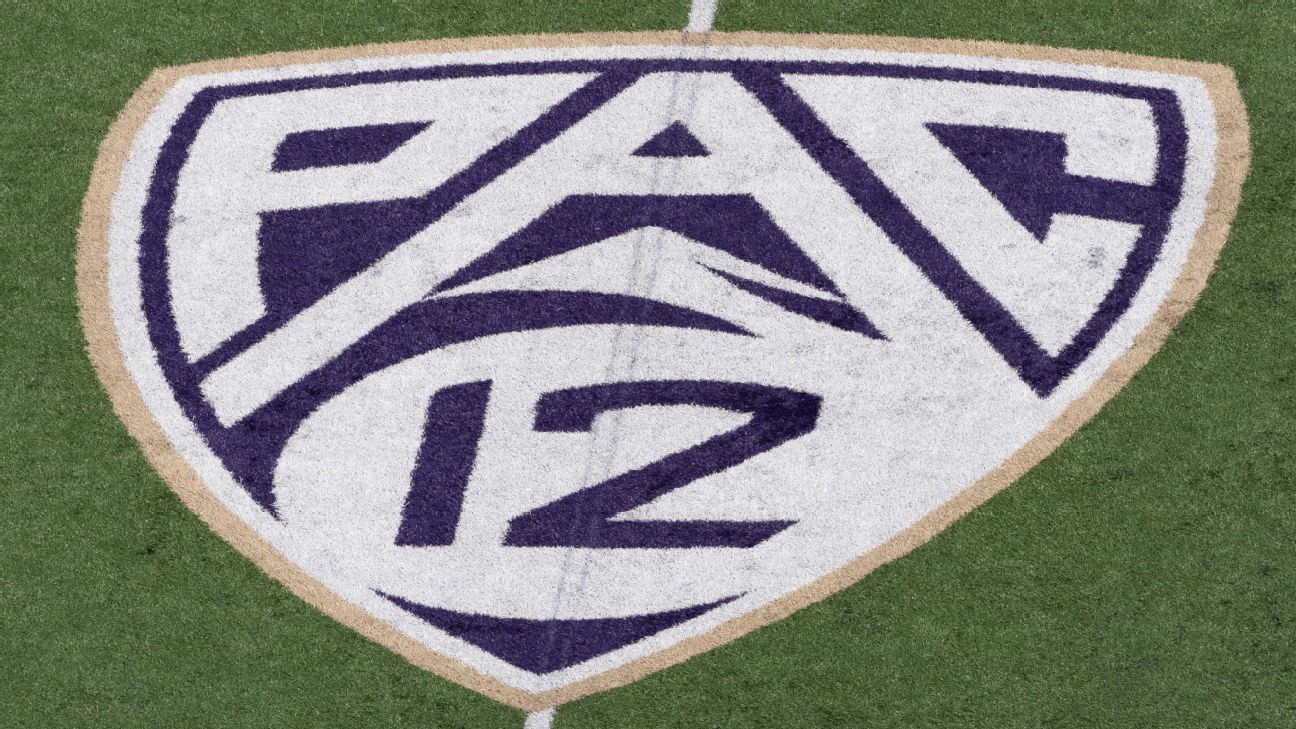A day after the Big Ten announced it would play a conference-only schedule in all sports this fall, the Pac-12 voted to do the same Friday during a meeting of athletics directors, university presidents and conference officials.
The Pac-12 CEO Group’s decision will delay the start of fall seasons, including football.
One of the reasons the Pac-12 decided to push back the start of the football season was a concern that UCLA and USC would not be ready to play in early September because of coronavirus cases in the Los Angeles area, sources told ESPN.
The Bruins were slated to open the season against New Mexico State at home on Aug. 29; the Trojans were scheduled to open against Alabama at AT&T Stadium in Arlington, Texas on Sept. 5.
The Pac-12’s decision to play only conference games means Notre Dame will not face USC for the first time since World War II. The Irish and Trojans have played each other every season since 1926 except for 1943-45 because of the war. Notre Dame will also lose its rivalry game against Stanford, which has been played every year since 1988, except for 1995 and 1996. Because of the Big Ten’s decision, Notre Dame’s contest against Wisconsin at Lambeau Field in Green Bay also won’t be played.
The move also creates scheduling dilemmas for BYU and Hawaii, which will both have to find new opponents for each of their first four games. BYU was scheduled to play Utah, Michigan State, Arizona State and Minnesota the first four weeks and Stanford in the regular-season finale, while Hawaii was slated to play Arizona, UCLA, Fordham (the Patriot League banned flying for the upcoming season) and Oregon.
Colorado State, UNLV, Utah State and FCS program Portland State were all scheduled to play two games each against Pac-12 foes.
The decision also includes men’s and women’s soccer and women’s volleyball, and the league said it is delaying the start of mandatory athletic activities “until a series of health and safety indicators, which have recently trended in a negative direction, provided sufficient positive data to enable a move to a second phase of return-to-play activities.”
“The health and safety of our student-athletes and all those connected to Pac-12 sports continues to be our number one priority,” Pac-12 commissioner Larry Scott said in a statement. “Our decisions have and will be guided by science and data, and based upon the trends and indicators over the past days, it has become clear that we need to provide ourselves with maximum flexibility to schedule, and to delay any movement to the next phase of return-to-play activities.”
The league said student-athletes who choose not to participate in intercollegiate athletics during the coming academic year because of safety concerns about COVID-19 will continue to have their scholarships honored by their university and will remain in good standing with their team.
“Competitive sports are an integral part of the educational experience for our student-athletes, and we will do everything that we can to support them in achieving their dreams while at the same time ensuring that their health and safety is at the forefront,” said Michael Schill, the Pac-12 CEO Group chair and president of the University of Oregon.
Officials from the ACC, Big 12 and SEC told ESPN on Friday that they will likely wait until the end of July to make a decision on scheduling for football this fall, if the season can be played. SEC athletic directors are scheduled to meet at the league’s office in Birmingham, Alabama, on Monday. ACC officials also are scheduled to meet next week.
Adam Rittenberg contributed to this report.


